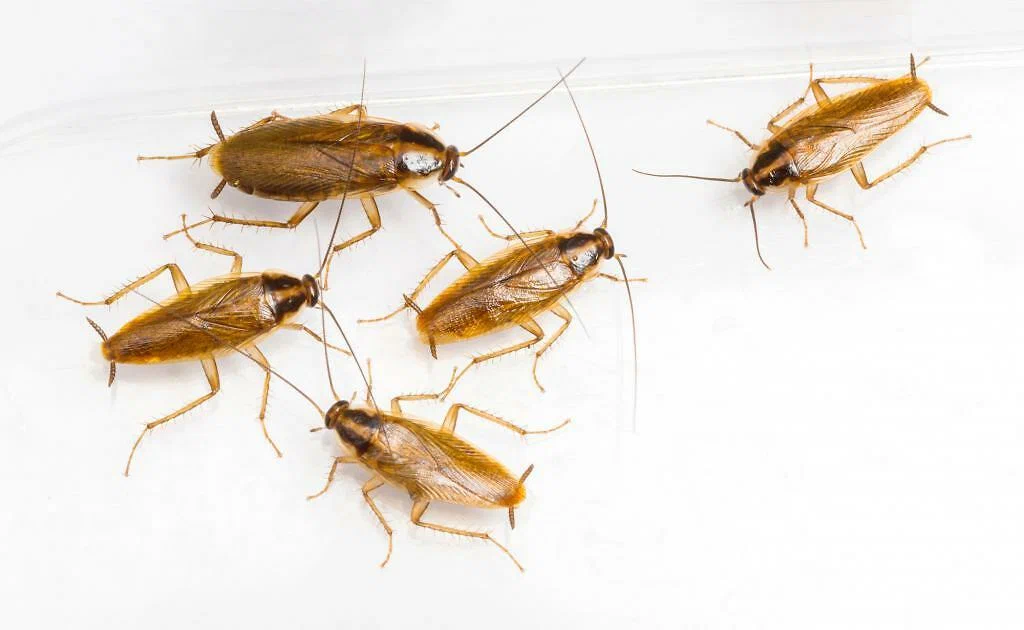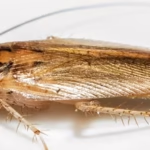The German cockroach, also known as Blattella germanica, is one of the most common and troublesome pests worldwide. These small, fast-moving insects are notorious for infesting homes, restaurants, and other spaces where food and water are readily available. Their resilience and rapid reproduction make them a formidable foe. In this guide, we’ll delve into everything you need to know about German roaches, including their biology, behavior, and effective management strategies.
What Are German Roaches?
German cockroaches are small, typically measuring between ½ and ⅝ inches in length. They have a light brown to tan body with two distinctive dark parallel stripes running down their back. Unlike some other cockroach species, German roaches are not outdoor pests. They thrive in warm, humid indoor environments where food and water are abundant.
Why Are German Roaches a Problem?
German roaches are more than just a nuisance; they pose significant health risks:
- Disease Transmission: They can carry pathogens such as E. coli and Salmonella, which can contaminate food and surfaces.
- Allergies and Asthma: Their droppings, shed skins, and saliva can trigger allergies and worsen asthma symptoms, especially in children.
- Rapid Reproduction: A single female can produce up to 40 eggs in one ootheca (egg case), with each egg hatching in about 28 days. This makes infestations grow exponentially if not promptly addressed.
Signs of a German Roach Infestation
- Sightings: Spotting live roaches, especially during the day, indicates a severe infestation.
- Droppings: Tiny black or dark brown specks resembling ground pepper, often found in kitchen drawers, cabinets, or near food sources.
- Egg Cases: Brown or tan capsule-shaped oothecae in hidden areas.
- Musty Odor: A strong, unpleasant smell, particularly in heavily infested spaces.
How to Prevent and Control German Roaches
1. Prevention
The best defense against German roaches is a good offense. Here are some preventive measures:
- Cleanliness: Regularly clean kitchen counters, floors, and appliances to eliminate food residues.
- Proper Food Storage: Store food in sealed containers and avoid leaving pet food out overnight.
- Eliminate Water Sources: Fix leaky pipes, faucets, and drains to reduce moisture.
- Seal Entry Points: Use caulk to seal cracks, crevices, and gaps in walls, doors, and windows.
2. Effective Control Methods
If prevention fails, controlling an infestation requires a strategic approach:
- Baits: Gel baits are effective in luring and killing roaches. Place them in areas where roaches are active.
- Insecticides: Use sprays and dust products labeled for cockroach control in crevices, baseboards, and behind appliances.
- Traps: Sticky traps can monitor and reduce the population.
- Professional Pest Control: For severe infestations, hiring a licensed pest control service ensures comprehensive treatment.

Natural Remedies for German Roaches
For those who prefer chemical-free solutions, here are some natural remedies:
- Diatomaceous Earth: Sprinkle food-grade diatomaceous earth in areas where roaches travel. It dehydrates and kills them.
- Baking Soda and Sugar: A homemade bait combining these ingredients can be effective.
- Essential Oils: Oils like peppermint and tea tree can repel roaches when mixed with water and sprayed in infested areas.
The Importance of Vigilance
German roaches are resilient and adaptable, making them a challenging pest to eliminate. Regular inspections and consistent cleanliness are crucial to keeping them at bay. If you notice signs of an infestation, act swiftly to prevent the problem from escalating.
By understanding their habits and employing a combination of prevention and control measures, you can protect your home or business from the health risks and stress associated with German roach infestations.
Final Thoughts
German cockroaches may be small, but their impact on health and hygiene can be significant. Knowledge and proactive measures are your best tools in combating this pest. Stay vigilant, keep your spaces clean, and don’t hesitate to seek professional help when needed. With persistence and the right strategies, you can reclaim your space from these unwelcome invaders.


